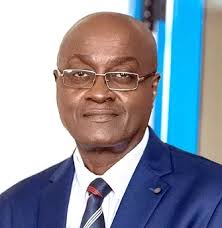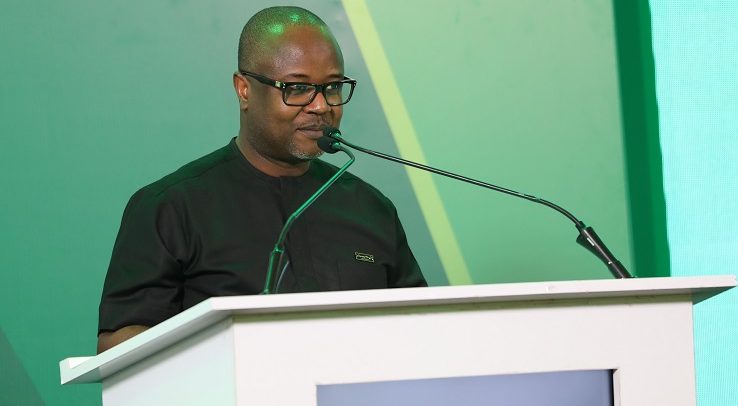
Plans by the Chartered Institute of Bankers (CIB) Ghana to make ethics and professional certification mandatory for all banking professionals represent one of the most significant reforms aimed at strengthening accountability and reducing fraud across the financial sector, Chief Executive Officer Robert Dzato has said.
The policy, developed in partnership with the Bank of Ghana (BoG) and the Ghana Association of Banks (GAB), forms part of a wider national effort to re-professionalise the industry through continuous training, certification, and adherence to ethical standards.
Mr. Dzato believes the initiative marks a decisive step toward rebuilding trust in the financial system. “The currency in banking is trust,” he said at the 29th National Banking and Ethics Conference in Accra.
It was held under the banner ‘Building Future-Ready Banks: Ethical Leadership, Sustainable Finance and Currency Stability amid Disruption’.
“Trust is built through character, competence, and consequence,and that is what we are building in Ghana’s banking workforce. Every banker will need to be certified to continue to work,” he added.
Under the new framework, the Ethics 2.0 Certification Programme, co-developed with the BoG, will be compulsory for all banking staff, from entry-level employees to senior executives and board members.
In addition, all branch managers must hold the Chartered Banker qualification (ACIB) within five years.
Mr. Dzato revealed that more than 9,000 bank employees across 11 institutions have already completed the earlier version of the programme, while the new move introduces enhanced modules on ethical conduct, digital responsibility, and anti-fraud awareness.

The move follows a worrying trend highlighted in the BoG’s 2024 Fraud Report, which recorded a five-percent increase in reported fraud cases and a 13-percent rise in total value at risk to GH¢99 million. Staff-related fraud, document forgery, and identity theft were identified as leading contributors.
In his keynote address, BoG Governor Dr. Johnson Pandit Asiama said the rise in unethical practices and internal fraud underscores the need for stronger professional accountability.
“Unethical practices remain widespread, with staff-related fraud on the rise. These issues threaten institutional integrity and public confidence, highlighting the urgent need for stronger ethical frameworks and accountability,” he said.

He noted that the central bank’s collaboration with CIB Ghana and GAB to develop the Ghana Banking Code of Ethics and Business Conduct was part of a broader regulatory reform agenda aimed at reinforcing transparency, consumer protection and good governance.
“Ethics is not a cost; it is a strategic investment. Trust is a bank’s greatest asset, essential for long-term success,” the Governor added.
Dr. Asiama added that the BoG’s approval in principle for the mandatory ethics certification programme reflects a commitment to embedding professionalism into regulatory supervision.
“This certification will form part of the fit-and-proper assessment for key management personnel and directors,” he confirmed.
Mr. Dzato welcomed the central bank’s leadership, saying the certification framework will empower the Institute to sanction errant professionals through an enforceable disciplinary mechanism, similar to those used in the accounting and legal professions.
“If you look at the data, most of the incidents involve people who are not certified professional bankers. Our goal is to ensure that those who manage public money are competent, ethical and subject to consequence,” he explained.
“Ethical conduct is not an option. It is the standard that defines whether a financial institution earns trust or loses it,” he added.
The initiative also earned praise from CIB Ghana President, Benjamin Amenumey, who called it “historic”, adding that it would help rebuild the moral fabric of the industry.
“Where trust is strong, stability is possible. Where trust is weak, the system is at risk,” he said.

Echoing these sentiments, Education Minister Haruna Iddrisu said the measure would complement the government’s broader efforts to strengthen ethics and financial literacy from an early age.
“Ethical banking is not optional. You hold public money, and the public must trust you to safeguard it,” he said.
He further urged banks to act as partners in the fight against financial crime.
“Many of the unethical and corrupt monies in this country pass through the banking system. Banks must not become conduits for corruption, but collaborators in building integrity and protecting public trust,” he noted.
Mr. Iddrisu also announced that the Ministry of Education will partner with the CIB Ghana and the National Council for Curriculum and Assessment (NaCCA) to integrate financial ethics into Ghana’s school curriculum, ensuring that the next generation of professionals develops ethical awareness before entering the workforce.
The post Mandatory ethics training will define nation’s banking future – CIB Ghana appeared first on The Business & Financial Times.
Read Full Story


















Facebook
Twitter
Pinterest
Instagram
Google+
YouTube
LinkedIn
RSS